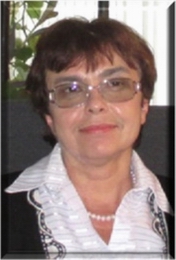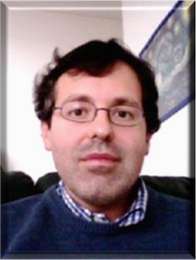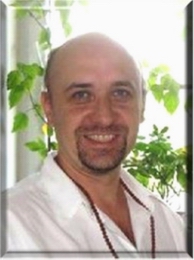Workshop: „Unraveling and targeting sequence- and structure-specific p53-DNA interactions in development and disease“
Joanna Zawacka-Pankau,Karolinska Institutet, Sweden
 Joanna Zawacka-Pankau is Assistant Professor and junior PI in Department of Microbiology, Tumor and Cell biology, Karolinska Institutet, Stockholm, Sweden. Joanna Zawacka-Pankau obtained her PhD in biochemistry from the University of Gdansk, Poland in 2005. Under supervision of Prof. Podhajska she investigated the therapeutic potential of activation of tumor suppressors: Fhit and p53 by small molecules to treat p53 wild-type tumors. In 2005 - 2006, she decided to continue the research focused on p53 tumor biologyand pursed her postdoctoral training in Karolinska Institutet under the mentorship of Prof. Selivanova. In 2006 she was awarded assistant professor position at University Gdansk, Poland (tenure track position). In 2012 she was granted the funding and started her own research in Karolinska Institutet. Nurtured by the fact that tumors deficient or mutant for p53 retain other members of p53 family: p73 and p63, she is currently investigating the potential of pharmacological activation of these p53 family members for efficient tumor killing using various tumor models and clinical samples.
Joanna Zawacka-Pankau is Assistant Professor and junior PI in Department of Microbiology, Tumor and Cell biology, Karolinska Institutet, Stockholm, Sweden. Joanna Zawacka-Pankau obtained her PhD in biochemistry from the University of Gdansk, Poland in 2005. Under supervision of Prof. Podhajska she investigated the therapeutic potential of activation of tumor suppressors: Fhit and p53 by small molecules to treat p53 wild-type tumors. In 2005 - 2006, she decided to continue the research focused on p53 tumor biologyand pursed her postdoctoral training in Karolinska Institutet under the mentorship of Prof. Selivanova. In 2006 she was awarded assistant professor position at University Gdansk, Poland (tenure track position). In 2012 she was granted the funding and started her own research in Karolinska Institutet. Nurtured by the fact that tumors deficient or mutant for p53 retain other members of p53 family: p73 and p63, she is currently investigating the potential of pharmacological activation of these p53 family members for efficient tumor killing using various tumor models and clinical samples.
More info: Therapeutic potential of activation of p53 family members to treat cancer.
Elena V. Savvateeva-Popova, Pavlov Institute of Physiology, St. Petersburg, Russia
 Elena Savvateeva-Popova, being with Pavlov Institute of Physiology, St. Petersburg, received her Master, PhD and Doctor of Science degrees in Genetics from St. Petersburg State University, Russian Federation. From May 1992 she was at the Department of Genetics and Development of Theodor-Boveri-Institut für Biowissenschaften, Würzburg, Germany and from September 1995 to February 1998 at the Department of Clinical Neurochemistry, Clinics for Psychiatry and Psychotherapy, University of Würzburg, Germany. Since then she is the Head of the laboratory of Neurogenetics, Pavlov Institute of Physiology, St. Petersburg, Russia. She is an active member of the Russion Council of N. Vavilov Society for Genetics and Selection, member of Editorial Board of “Russian Journal of Genetics”. Research activities in the Savvateeva-Popova lab are focused on the way “From Gene to Behavior”, namely, on the problem how structural and conformational changes in DNA sequence in the Drosophila agnostic gene coding for LIMK1, the key enzyme of actin remodeling, can affect long-term and short term memory in healthy and diseased brain. The Drosophila temperature-sensitive agnts3 mutant serves as a good switch between “healthy” and “diseased” states, demonstrating manifestations of Parkinson’s Dementia with Leavy Bodies and of deletion/duplication syndromes, i.e.Williams Syndrome, at normal, but not at stressful conditions.
Elena Savvateeva-Popova, being with Pavlov Institute of Physiology, St. Petersburg, received her Master, PhD and Doctor of Science degrees in Genetics from St. Petersburg State University, Russian Federation. From May 1992 she was at the Department of Genetics and Development of Theodor-Boveri-Institut für Biowissenschaften, Würzburg, Germany and from September 1995 to February 1998 at the Department of Clinical Neurochemistry, Clinics for Psychiatry and Psychotherapy, University of Würzburg, Germany. Since then she is the Head of the laboratory of Neurogenetics, Pavlov Institute of Physiology, St. Petersburg, Russia. She is an active member of the Russion Council of N. Vavilov Society for Genetics and Selection, member of Editorial Board of “Russian Journal of Genetics”. Research activities in the Savvateeva-Popova lab are focused on the way “From Gene to Behavior”, namely, on the problem how structural and conformational changes in DNA sequence in the Drosophila agnostic gene coding for LIMK1, the key enzyme of actin remodeling, can affect long-term and short term memory in healthy and diseased brain. The Drosophila temperature-sensitive agnts3 mutant serves as a good switch between “healthy” and “diseased” states, demonstrating manifestations of Parkinson’s Dementia with Leavy Bodies and of deletion/duplication syndromes, i.e.Williams Syndrome, at normal, but not at stressful conditions.
More info: Pavlov Institute of Physiology
Alberto Inga, University of Trento, Italy
 Alberto Inga is head of the Laboratory of Transcriptional Networksat the Center for Integrative Biology, CIBIO, and Associate Professor of Geneticsat the University of Trento, Italy. He obtained his Bachelor degree in Biology from the University of Genoa, Italy, Master degree in Applied Genetics from the University of Pavia, Italy and PhD in Biology and Genetics at the University of Genoa. In 1997 he was awarded an American Italian Foundation Fellowship through which he joined the Laboratory of Molecular Genetics, National Institute of Environmental Health Sciences, NIEHS, RTP, NC, USA, as a guest researcher, then a visiting fellow and later research fellow. From 2011 he joined University of Trento, Italy. Research activities in the Inga lab focus on p53 and the p53 family of transcription factors, including the functional classification of p53 response elements, the functional analysis of p53 and p63 mutant proteins, the regulation of transactivation specificity of p53 family promoter and splice variants, the crosstalk between p53 proteins, estrogen receptors and NFkB proteins. More recently the lab has been studying post-transcriptional regulation of gene expression modulated by p53 via microRNA and RNA binding protein, or provided by cis elements in 5’UTR sequences in the case of the p16INK4a and PTCH1b genes.
Alberto Inga is head of the Laboratory of Transcriptional Networksat the Center for Integrative Biology, CIBIO, and Associate Professor of Geneticsat the University of Trento, Italy. He obtained his Bachelor degree in Biology from the University of Genoa, Italy, Master degree in Applied Genetics from the University of Pavia, Italy and PhD in Biology and Genetics at the University of Genoa. In 1997 he was awarded an American Italian Foundation Fellowship through which he joined the Laboratory of Molecular Genetics, National Institute of Environmental Health Sciences, NIEHS, RTP, NC, USA, as a guest researcher, then a visiting fellow and later research fellow. From 2011 he joined University of Trento, Italy. Research activities in the Inga lab focus on p53 and the p53 family of transcription factors, including the functional classification of p53 response elements, the functional analysis of p53 and p63 mutant proteins, the regulation of transactivation specificity of p53 family promoter and splice variants, the crosstalk between p53 proteins, estrogen receptors and NFkB proteins. More recently the lab has been studying post-transcriptional regulation of gene expression modulated by p53 via microRNA and RNA binding protein, or provided by cis elements in 5’UTR sequences in the case of the p16INK4a and PTCH1b genes.
More info:Laboratory of Transcriptional Networks
Václav Brázda, Institute of Biophysics AS CR, v.v.i., Brno, Czech Republic
 Václav Brázda is the Head of the Laboratory of Molecular Oncologyat the Institute of Biophysics Academy of Sciences, Czech Republic, and a Researcher of Cellular and Molecular Neurobiology CEITEC at the Masaryk University in Brno, Czech Republic. He obtained his Master’s degree in Molecular Biology and Genetics, and PhD in Genetics at the the Masaryk University in Brno. From 2005 to 2006 he worked as a visiting fellow at the Ontario Cancer Institute, UHN, Toronto, Canada. He has achieved several prestigious awards including League Against Cancer Award for the young scientist (author of the best publications with oncology theme), Czech Society for Biochemistry and Molecular biology Award (for significant scientific contribution in biochemistry, cellular and molecular biology), Nature Cell Biology Award (Poster Competition, 4th Dubrovnik Signaling Conference), and Otto Wichterle Award (award of Academy of Sciences CR for excellent results). His research activities focus on the study of local DNA structures and DNA protein interactions, including tumor suppressor protein p53 and other important transcription factors and proteins that are of significant in basic cell maintenance and regulation.
Václav Brázda is the Head of the Laboratory of Molecular Oncologyat the Institute of Biophysics Academy of Sciences, Czech Republic, and a Researcher of Cellular and Molecular Neurobiology CEITEC at the Masaryk University in Brno, Czech Republic. He obtained his Master’s degree in Molecular Biology and Genetics, and PhD in Genetics at the the Masaryk University in Brno. From 2005 to 2006 he worked as a visiting fellow at the Ontario Cancer Institute, UHN, Toronto, Canada. He has achieved several prestigious awards including League Against Cancer Award for the young scientist (author of the best publications with oncology theme), Czech Society for Biochemistry and Molecular biology Award (for significant scientific contribution in biochemistry, cellular and molecular biology), Nature Cell Biology Award (Poster Competition, 4th Dubrovnik Signaling Conference), and Otto Wichterle Award (award of Academy of Sciences CR for excellent results). His research activities focus on the study of local DNA structures and DNA protein interactions, including tumor suppressor protein p53 and other important transcription factors and proteins that are of significant in basic cell maintenance and regulation.
September 15-19, 2015, Brno, Czech Republic

